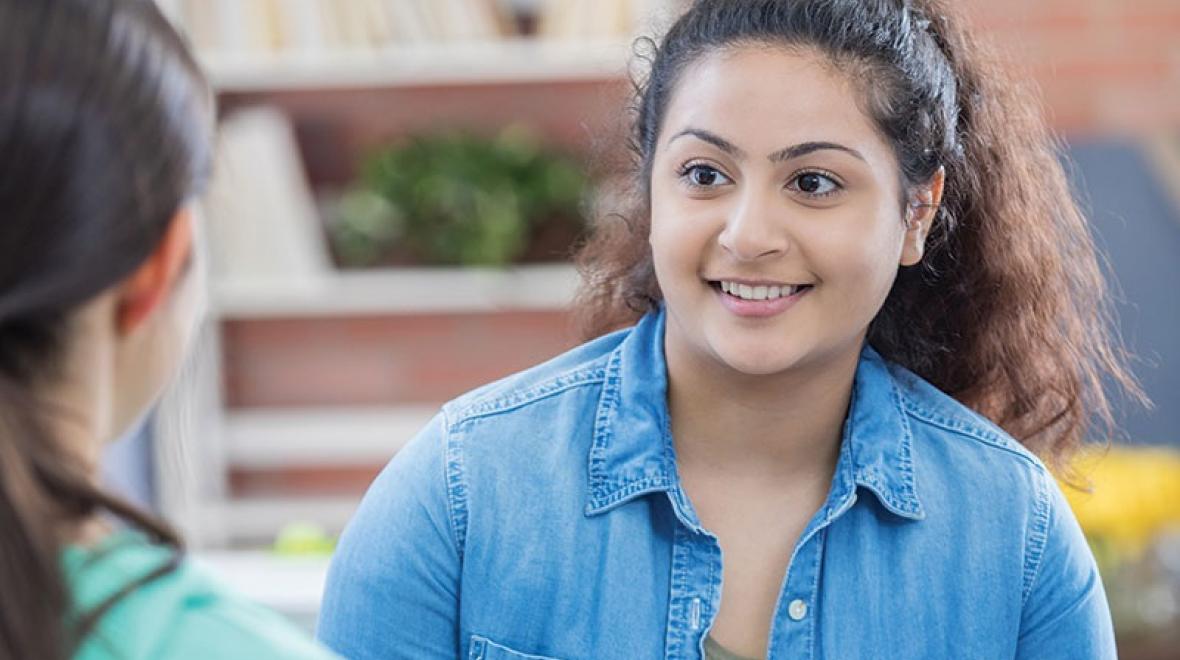
When I was a teenager, my stepmom was my saving grace. I had a mom, but Susan was the one I confided in precisely because she wasn’t my parent. She was more interested in supporting me and maintaining a relationship than pulling rank or doling out punishment. She didn’t treat me like an equal, but neither did she treat me like a little kid.
I realize now that she was my first mentor, offering guidance and care during the years when I was learning what it meant to be my own person. These days, as the mother of two teens, I think every kid needs a mentor.
Janice Deguchi agrees. Deguchi is the executive director of Community for Youth, a mentoring program for teens in the Seattle area. This nonprofit has been working to pair adult mentors and teens for more than 25 years. The organization currently serves 80 youth; its mission, Deguchi says, is to “help kids this age develop their voice, understand themselves and experience unconditional positive regard from a caring adult.” All factors that are crucial for healthy development and, ultimately, economic stability, she says.
I’ve seen the positive influence mentorship has had on my own children. When she was in sixth grade, my daughter Lauren was paired with a mentor through Seattle Girls’ School. Her mentor Sarah is a smart, loving, fun young woman who was ultimately an important guide for Lauren.
She was closer to Lauren’s age than I was, and the relationship they built through group activities as well as individual outings to the movies or just hanging out meant that Sarah felt like family. She was a passive role model and an active, engaged problem solver who encouraged Lauren to speak her mind without fear.
“She was an adult and had more life experience than my friends, but she wasn’t a parent,” my daughter says of their relationship. “It’s different when you can talk to an adult and know it’s totally safe.”
What to look for in your kid’s mentor
Of course, not all mentoring programs are the same. Some highlight academic or career assistance. Others focus on fostering a trusting relationship with an adult who isn’t a family member, like the Community for Youth program.
Regardless, a strong mentorship should have five crucial elements, according to the Search Institute, a research-based organization working to help strengthen youth programs across the country.
In order to thrive, the institute says, young people need relationships that involve caring, support, shared power (allowing the teen to lead and use their voice), growth (seeing the child’s potential and encouraging them to learn from mistakes) and an expansion of possibilities (encouraging their imagination and broadening the young person’s experience).
Why mentorship matters
“Research shows that young people with mentoring relationships are more resilient, more likely to set and meet personal goals, volunteer in their community and more likely to be leaders,” says Victoria Santos, codirector of Young Women Empowered, a Seattle-based organization that provides leadership training and mentorship to female students ages 13–18.
Santos points to her work with young women as an example.
“For young women to see positive adult women who are willing to be courageous and honest about their own challenges navigating their lives is tremendously inspiring,” she says. “What I see as most powerful for young women is the expanded sense of possibility, hope and self-belief that blossoms [from a mentorship relationship].”
As kids get older, a relationship with a mentor also helps them learn to interact with other adults. Having opportunities to advocate for themselves and learning how to ask for support are key to future success interacting with college professors or bosses or in any number of situations for when they’re no longer living at home.
So, where can you find a mentor?
It doesn’t have to be a formal mentoring program, although there are benefits to those, such as structured time together for mentor and child, background checks on potential mentors and official mentor training. Some young people are lucky enough to have a strong relationship with a boss, coach or school counselor who guides them and listens to them.
Locally, MENTOR Washington maintains a list of organizations in our state and will help parents and guardians find a good match based on geography, the child’s age and type of mentorship. Other programs include the YMCA’s Reach & Rise program, Young Women Empowered, Big Brothers Big Sisters of Puget Sound and Community for Youth. School counselors are also an excellent resource for ideas.
It can be hard as a parent to know that your child is confiding in someone other than you, but trust me: If that person is a mentor, it can also be incredibly reassuring.
There were times when my daughter would come home and tell me that Sarah had given her the same exact piece of advice she’d ignored when I offered it. I would roll my eyes and keep my thoughts to myself, knowing that the important thing was that there was another adult who was watching out for my kid.











